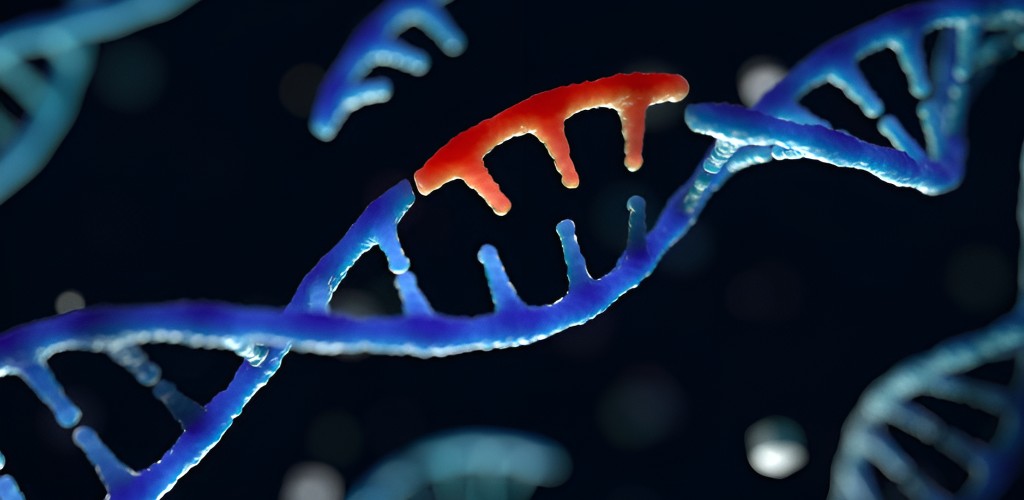In the ever-evolving landscape of scientific discovery, a new frontier has emerged that is captivating the minds of researchers, innovators, and the general public alike. Synthetic biology, a field that blends the principles of engineering and biology, has unlocked the power to manipulate the fundamental building blocks of life – DNA, the genetic code that defines the characteristics and functions of living organisms. By harnessing this remarkable capability, synthetic biologists are rewriting the very fabric of life, paving the way for groundbreaking advancements that hold the potential to transform our world.
Mastering the Genetic Code
At the heart of synthetic biology lies the ability to precisely engineer genetic sequences, allowing for the design and construction of entirely new biological systems or the re-engineering of existing ones. This process of genetic manipulation grants synthetic biologists unparalleled control over cellular functions, enabling them to program microbes to produce valuable compounds, modify the traits of crops, or even create novel life forms tailored to specific purposes.
Advances in DNA Synthesis and Assembly
The rapid progress in DNA synthesis and assembly techniques has been a crucial enabler for the field of synthetic biology. Researchers can now construct custom genetic sequences with greater speed, accuracy, and scale than ever before, unlocking new possibilities for the creation of innovative biological systems.
Computational Design and Modeling
Advancements in computational biology and bioinformatics have also played a pivotal role in the development of synthetic biology. Researchers can now leverage powerful modelling and simulation tools to design and optimise synthetic biology systems prior to experimental implementation, accelerating the pace of innovation.
Directed Evolution
The Nobel Prize-winning technique of directed evolution has become a valuable tool in the synthetic biologist’s arsenal. By iteratively mutating and selecting for desired traits, researchers can engineer organisms and enzymes with unprecedented capabilities, expanding the boundaries of what is possible.
Transformative Applications of Synthetic Biology
As synthetic biologists continue to master the genetic code, the potential applications of this transformative field are vast and far-reaching, spanning industries from healthcare to agriculture and beyond.
Microbial Cell Factories
One of the most promising applications of synthetic biology is the engineering of microbes to serve as “cell factories” for the production of valuable compounds, such as pharmaceuticals, biofuels, and food ingredients. By optimizing the metabolic pathways of these microbes, researchers can achieve high-yield, sustainable production.
Engineered Organisms for Environmental Remediation
Synthetic biology also holds the potential to address pressing environmental challenges. Researchers are exploring the use of engineered organisms for tasks like bioremediation, where microbes are employed to break down or sequester pollutants and contaminants.
Synthetic Biology in Agriculture
In the agricultural sector, synthetic biology is being leveraged to engineer crops with improved traits, such as increased resilience, nutritional value, and resistance to pests and diseases. This could play a crucial role in addressing global food security challenges.
Navigating the Ethical Landscape
As synthetic biology continues to push the boundaries of what is possible, it is essential to navigate the complex ethical considerations that accompany this pioneering science. Issues surrounding biosafety, biosecurity, and the potential misuse of engineered organisms require robust governance frameworks and international collaboration.
Policymakers, industry leaders, and the scientific community must work together to develop clear guidelines and protocols that prioritize public safety, environmental protection, and equitable access to the benefits of synthetic biology. Fostering transparency, promoting public understanding, and empowering individuals to make informed decisions about the use of this technology will be crucial in shaping its responsible development.
Conclusion:
The rise of synthetic biology represents a transformative leap in our understanding and manipulation of life itself. By rewriting the code of life, synthetic biologists have the power to address some of humanity’s most pressing challenges, from curing diseases to ensuring food and energy security. However, as we embark on this exciting journey, we must remain vigilant to the ethical considerations and potential risks that accompany this pioneering science.
Through collaboration, responsible innovation, and a steadfast commitment to sustainability, we can ensure that the development of synthetic biology remains a force for good, shaping a future that is healthier, more equitable, and more resilient for generations to come. The ability to rewrite the very fabric of life is a profound responsibility, one that requires us to approach this technology with the utmost care and foresight.
As we continue to push the boundaries of what is possible, let us do so with a deep respect for the complexities of the natural world and a vision for a future where the power of genetic engineering is harnessed to create a better world for all. By embracing the challenges and opportunities of synthetic biology, we have the chance to redefine the limits of human potential and sculpt a tomorrow that is truly remarkable.





Youre so cool! I dont suppose Ive learn something like this before. So nice to search out anyone with some original ideas on this subject. realy thank you for beginning this up. this website is one thing that is wanted on the internet, somebody with a little bit originality. helpful job for bringing something new to the web!